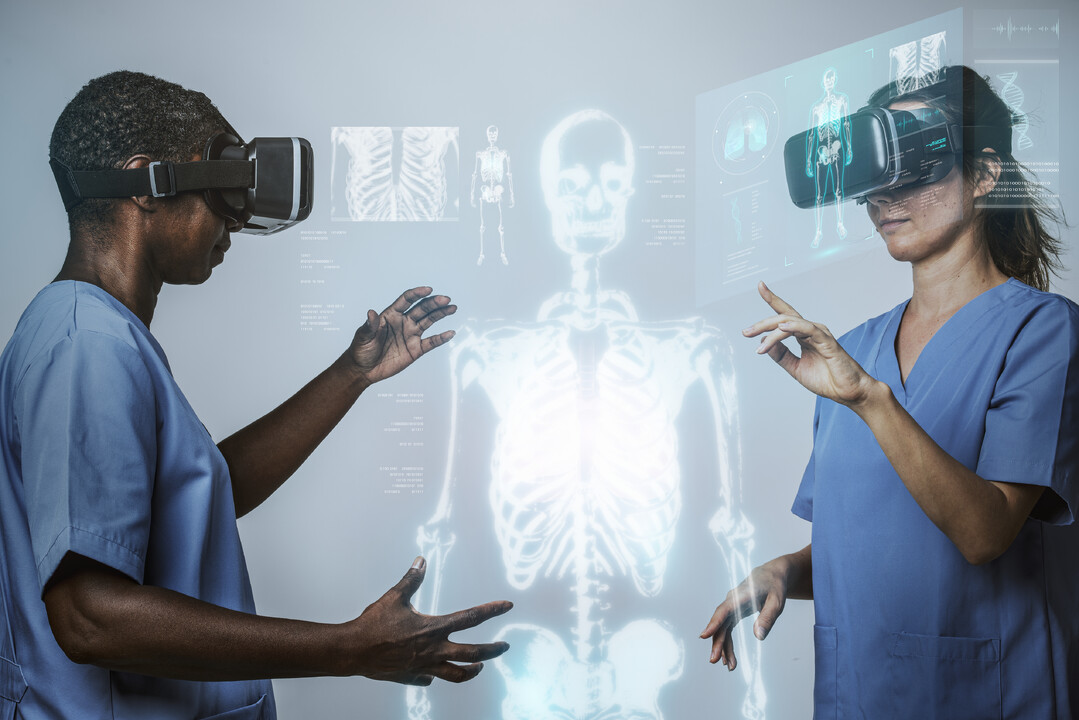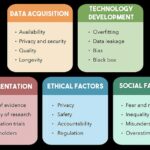Health education is a crucial component of improving public health and empowering individuals to make informed decisions about their well-being. In recent years, artificial intelligence (AI) has significantly enhanced health education platforms, transforming how health information is delivered, accessed, and personalized. By leveraging AI’s capabilities, these platforms offer more interactive, tailored, and engaging learning experiences, ultimately leading to better health literacy and outcomes. This article explores how AI is reshaping health education platforms, highlighting their benefits and addressing the challenges they face.
Transforming Content Delivery with AI
AI has revolutionized content delivery in health education by enabling more dynamic and personalized learning experiences. Traditional health education methods, such as textbooks and static online resources, often present information in a one-size-fits-all format. AI-enhanced platforms, on the other hand, utilize algorithms to tailor content based on an individual’s needs, preferences, and learning style.
For instance, AI can analyze user data, such as previous interactions, search history, and learning progress, to recommend relevant content. This personalization ensures that users receive information that is most pertinent to their specific health concerns or interests. Additionally, AI-driven platforms can adapt in real-time to the user’s level of understanding, providing explanations, examples, or additional resources as needed. This approach enhances user engagement and improves the effectiveness of health education.
Interactive Learning Experiences
AI-powered health education platforms offer interactive learning experiences that go beyond traditional text-based content. Advanced technologies such as natural language processing (NLP) and machine learning enable the development of interactive tools like chatbots and virtual health coaches. These tools can engage users in conversations, answer questions, and provide personalized guidance on various health topics.
Chatbots, for example, can simulate real-life interactions, allowing users to ask questions about symptoms, treatments, or preventive measures. They provide immediate, accessible information and can help users navigate complex health topics more easily. Virtual health coaches, on the other hand, can offer personalized advice and support based on individual health data and goals. These interactive features make learning about health more engaging and accessible, catering to diverse learning preferences.
Enhancing Accessibility and Reach
AI-enhanced health education platforms significantly improve accessibility and reach, making health information available to a broader audience. Traditional health education resources may be limited by geographic, language, or socioeconomic barriers. AI can address these challenges by offering multilingual support, ensuring that health information is accessible to non-native speakers and diverse populations.
AI algorithms can also optimize content delivery based on users’ internet connectivity and device capabilities, ensuring that resources are accessible even in low-bandwidth or resource-limited settings. Additionally, AI can help identify and address gaps in health education, ensuring that underserved communities receive relevant and accurate information. By overcoming traditional barriers to access, AI-enhanced platforms contribute to more equitable health education.
Data-Driven Insights for Tailored Education
One of the key advantages of AI in health education is its ability to generate data-driven insights that inform and enhance educational strategies. AI systems can analyze user data to identify patterns and trends in health knowledge, behavior, and outcomes. These insights can be used to refine educational content, improve delivery methods, and tailor interventions to better meet users’ needs.
For example, AI can track user engagement metrics, such as time spent on educational modules, quiz performance, and feedback, to assess the effectiveness of different teaching approaches. This data-driven approach allows for continuous improvement of educational resources, ensuring that they remain relevant and effective. Additionally, AI can help identify areas where users may need additional support or clarification, enabling targeted interventions to address specific knowledge gaps.
Supporting Health Behavior Change
AI-enhanced health education platforms play a crucial role in supporting health behavior change by providing users with the tools and resources they need to adopt and maintain healthy habits. AI-driven features such as goal-setting, progress tracking, and personalized feedback can help users stay motivated and engaged in their health journey.
For example, AI algorithms can analyze users’ health data to set realistic and achievable goals, such as improving physical activity levels or adopting a healthier diet. The platform can then provide tailored recommendations, track progress, and offer encouragement and rewards for achieving milestones. This supportive approach helps users stay committed to their health goals and fosters positive behavior change over time.
Addressing Challenges and Limitations
Despite the many benefits, AI-enhanced health education platforms also face several challenges and limitations. One major concern is the quality and accuracy of the information provided. AI algorithms are only as good as the data they are trained on, and if this data is flawed or outdated, it can lead to incorrect or misleading health information. Ensuring that AI systems are based on credible, evidence-based sources is essential for maintaining the reliability of health education resources.
Another challenge is the need for user privacy and data security. AI platforms collect and analyze sensitive health information, and safeguarding this data is crucial to protect users’ privacy. Compliance with data protection regulations and implementing robust security measures are necessary to address these concerns.
Additionally, while AI can enhance health education, it should complement, not replace, traditional educational methods and professional guidance. Users should be encouraged to seek advice from healthcare professionals for personalized medical care and support. Balancing AI-driven education with expert input ensures that users receive comprehensive and accurate information.
Conclusion
AI-enhanced health education platforms represent a significant advancement in the way health information is delivered and accessed. By offering personalized content, interactive learning experiences, and data-driven insights, these platforms have the potential to improve health literacy and support positive behavior change. However, addressing challenges related to information accuracy, data security, and the role of professional guidance is essential for maximizing the benefits of AI in health education. As technology continues to evolve, AI will likely play an increasingly important role in shaping the future of health education, contributing to better health outcomes and more informed individuals.




